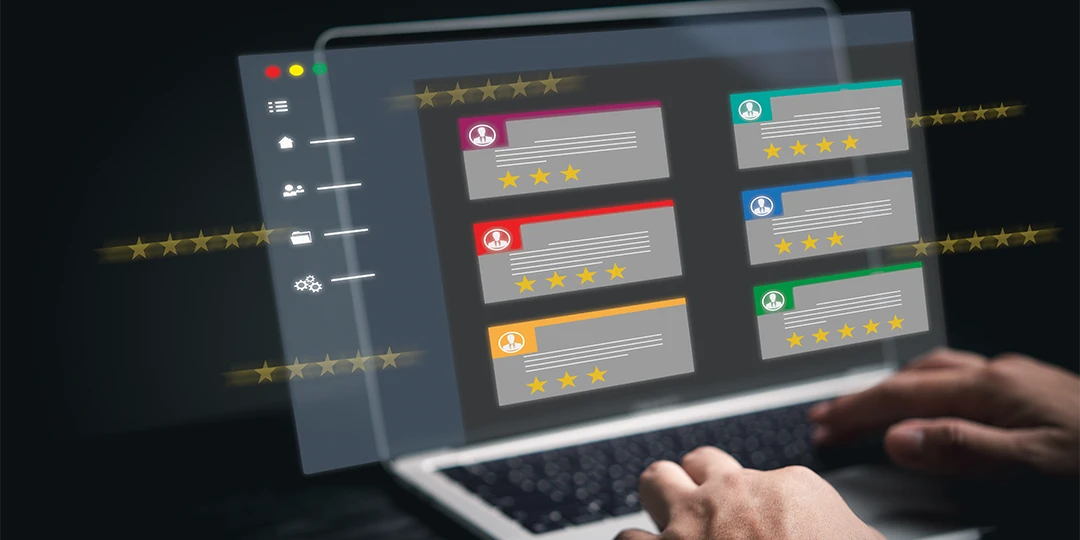The Critical Role of Referral Campaigns
Every behavioral health organization welcomes referrals, but not all seek them—particularly with any consistency. That’s unfortunate since they can boost business in several ways.
Too often, referral campaigns are an “if we have time and budget” type of thing. Most marketing agencies focus the vast majority of their efforts on reaching a client’s end users. Connecting with those people is crucial, but it’s just one piece of the puzzle.
At A-Train Marketing, we take what many have historically seen as an afterthought and make it an essential element in successful marketing strategies, particularly for organizations launching new service lines, locations, or brands.
Learn why and how we execute referral campaigns below.

What Is a Referral Campaign?
Referral campaigns are similar to traditional marketing campaigns in many ways. You reach out to people through their preferred communication channels using compelling information and visuals to try to generate interest in your offerings. Where these campaigns differ is that the target audience isn’t the end users of your services (patients or clients) but rather individuals who might refer people to your organization—primary care doctors, school counselors, etc.
The messaging tends to be different, as well. Rather than emphasizing what matters to end users (getting and staying well), referral campaigns may include some of those details but prioritize things like how easy you are to work with, how your skill in treating conditions reflects positively on the referrer, etc. In addition, ongoing nurturing of relationships is important in traditional marketing but vital in referral campaigns.
So, referral marketing is unique, and an agency that is good at reaching a traditional audience might not have the background or expertise to devise and execute an effective referral campaign.
The Significant Benefits of Behavioral Health Referral Campaigns
There are multiple reasons referral campaigns are so important in the behavioral health space. One is that they can be very cost-effective. That fact matters to behavioral health marketers. As one result from a recent Behavioral Health Business (BHB) survey showed, industry professionals indicated that “Budget” is their top challenge.
Another benefit of referral campaigns is that they can have incredible long-term value. A referrer could conceivably point patients in your direction for years or even decades.
Then, there’s the brand boost from having respected organizations talk positively about your offerings. Even if a particular entity never has a patient who uses your services, the organization’s praise can increase the likelihood that others will.

Our Proven Approach To Engaging With Referrers
You might wonder, “Why don’t behavioral health organizations just reach out to industry stakeholders on their own?” That’s a great question!
For many, their reluctance is reflected in another result from the BHB survey: 63% of respondents are only somewhat confident or not confident at all in their digital marketing capabilities. It’s reasonable to assume they recognize that reaching out in the wrong ways can alienate potential referral sources, which could be worse than not contacting them at all!
Behavioral health companies trust A-Train Marketing for our deep referral marketing expertise and proven five-step process:

Identify the campaign goal. Your objective might be to generate referrals right from the start, or you might simply be looking to start conversations with a business development or community engagement rep.

Conduct campaign concepting and develop a strategy. This step involves audience research that informs messaging efforts and graphics ideation. Initial drafts of the deliverables are then reviewed and refined as needed.

Build out the campaign strategy. Next, determine the channels and tools that will be used to get messaging in front of your audience. We’ve found that leveraging at least three channels delivers the best results. For example, a specific campaign might involve email outreach, physical mail pieces, and digital ads. But that’s just one trio from a long list of channels that includes email, mail, digital ads, traditional ads, “swag,“ voicemails, LinkedIn engagement, in-person visits from team members, and more.

Implement the campaign components. Careful timing and attentive oversight of all the campaign elements are essential for building awareness and turning it into engagement that leads to a strong, mutually beneficial relationship with your team.

Assess performance. Referral campaigns, like all marketing campaigns, vary in their success rates. Consequently, it’s critical to get the best possible picture of a campaign’s effectiveness so it can be optimized. We do this by using multiple tracking metrics and asking business development and community engagement reps directly for their opinions. Their frank assessment often is the best way to measure success.
Successful Behavioral Health Organizations Leave Nothing on the Table
Another stat from the BHB survey points to how imperative it is to do all you can and use every avenue to reach your end users. When behavioral health organizations were asked where they are focusing the majority of their digital marketing efforts, “partnership/referral marketing” finished in what was essentially a three-way tie for third place behind social media marketing and search engine optimization (SEO).
We were thrilled, of course, to see results that underscore the importance of an aspect of behavioral health marketing that we’ve pioneered and continue to recommend for its impressive revenue-generating potential.
Finally, 62% of survey participants said their marketing spend will increase this year. From our perspective—and in our experience—one of the best uses of those additional dollars is starting or elevating behavioral health referral campaigns!


